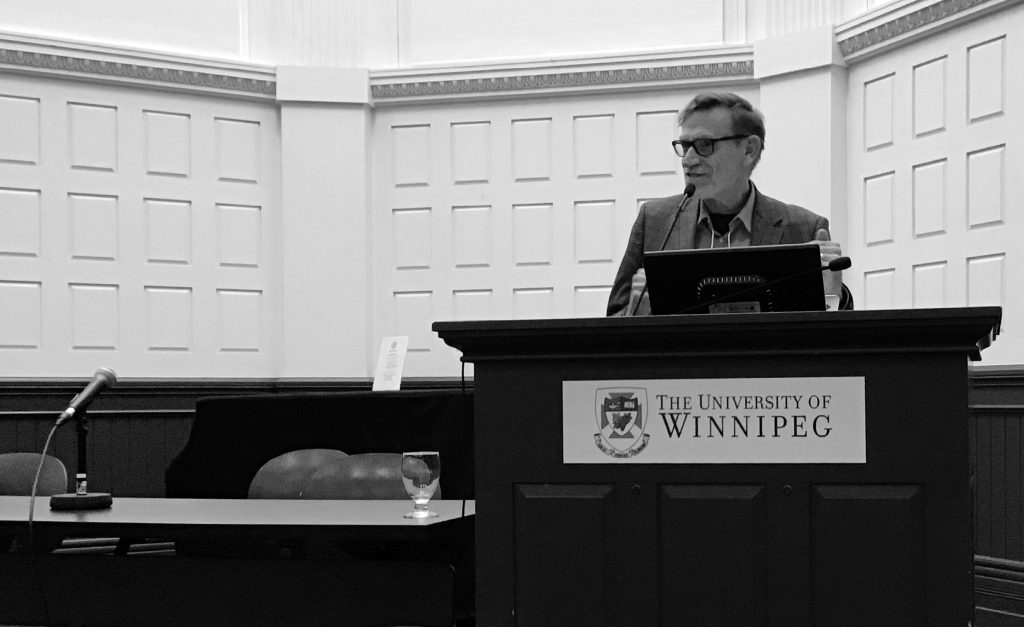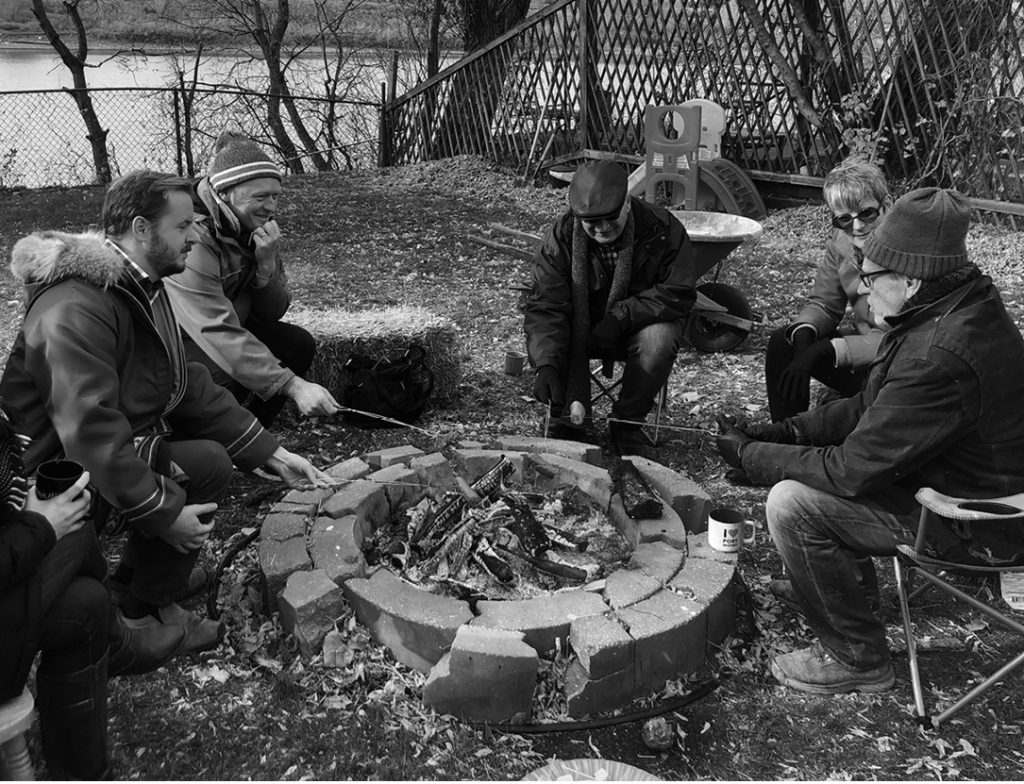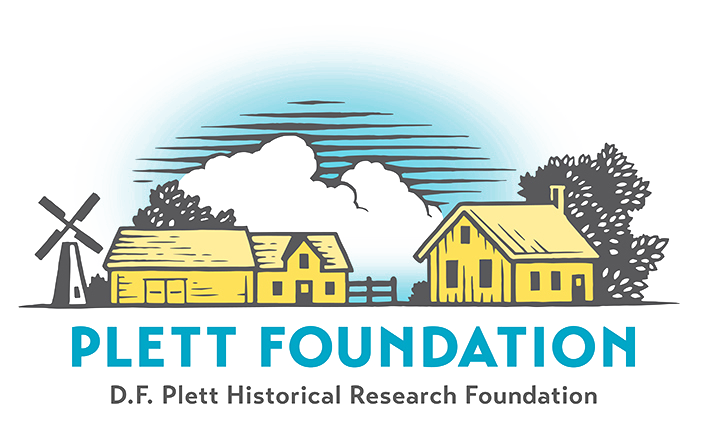A Tribute to Dr. Royden Loewen
Aileen Friesen
After serving as Chair in Mennonites Studies for twenty-four years (1996–2020), Roy Loewen has retired from the University of Winnipeg. During his tenure as chair and as director of the Centre for Transnational Mennonite Studies, Roy took a strong but inward-looking program and gave it global standing. Through his personable nature, his sharp intellect, and his genuine love of research and teaching, Roy has left his mark on the university and on the field of Mennonite studies.
Many people within the community had the chance to get to know Roy during Mennonite Studies conferences, which became an annual tradition at the university for over twenty years. People marked their calendars and planned their pilgrimages to Winnipeg to hear the latest innovative research in Mennonite studies. Under Roy’s energetic leadership, the conferences engaged with such diverse themes as Indigenous-Mennonite relations, “Mennonites and Medicine,” and “Mennonites and the Environment.” Roy presided over these multi-day events, always ready with a quip or a disarming question to steer the discussion in a new direction. At his final conference in the fall of 2019, “Mennonites and Anthropology,” a grateful audience showed their appreciation for his dedicated work as they serenaded him in celebration of his sixty-fifth birthday.

These conferences not only offered Mennonites a forum to collectively address historical issues but also gave the opportunity for emerging scholars, myself included, to participate in the conversation. Many of us shared our research at these conferences, turning these presentations into publications in the Journal of Mennonites Studies. As editor of the journal, Roy championed our work, shepherding our research into print. He also hired us to work on his multiple government-funded projects, providing funds to keep our careers alive and build our resumes. Through these experiences, he taught us to have the confidence to ignore the obstacles in favour of the possibilities. In the long list of Roy’s professional legacies, this is often overlooked – how much he inspired the next generation. To borrow from the Russian writer Fyodor Dostoevsky, many of us have come out from under Roy’s overcoat.
Roy’s prodigious scholarship set a new agenda for Mennonite history and made significant contributions to migration and ethnic studies as well as environmental history. He wrote and edited an astounding ten books (with more in the pipeline) along with over twenty articles and over ten book chapters. Roy refreshingly gave voice to the dynamic social histories of the Kleine Gemeinde and other conservative Mennonite groups associated with the 1870s migration. His scholarship pushed forward sophisticated arguments about diasporic groups like the Mennonites, which focused on the internal workings of community and the environment they inhabited rather than the nation-states within which they lived. Most importantly, these communities could see themselves within his narratives. This is a hallmark of a great historian: someone who never loses sight of the essence and humanity of his subjects.
Roy’s scholarly career began with an impressive 600-page examination of his home community, Blumenort, Manitoba, where he was born and raised his three children, Rebecca, Meg, and Sasha, with his talented wife, Mary Ann. His book, Blumenort: A Community in Transition, explored the village’s origins as a Kleine Gemeinde settlement and its transformation into a centre of business. Roy would continue to examine the history of the Kleine Gemeinde through his award-winning second book, Family, Church, and Market: A Mennonite Community in the Old and New Worlds, 1850–1930. Roy offered a new interpretation of the 1870s migration, arguing that the Kleine Gemeinde did not shun the modern world but rather strategically engaged with it.
In his book Diaspora in the Countryside, Roy continued to explore the social and cultural transformation of the Kleine Gemeinde by focusing on their responses to the rise of global markets and new technologies during the mid-twentieth century. This book challenged a simplistic portrait of a countryside emptying into cities by showing how Mennonites formed new cosmologies as they engaged with this transformed rural environment. It also marked Roy’s foray into an explicitly transnational approach to history, which he deepened in Village among Nations. Using a variety of source materials, including oral interviews, diaries, and newspapers, Roy followed the waves of migration that took Low German–speaking Mennonites from Canada to various places in the Americas. He demonstrated that these groups formed a transnational village joined together by a shared history and their ethno-confessional sensibilities.

For his next book, Roy explored the responses of horse-and-buggy Mennonites in southern Ontario and Latin America as they faced the modern world. Featuring the authentic voices of Mennonites through extensive oral interviews, Horse-and-Buggy Genius takes seriously what communities say about themselves. This approach is also at the heart of his forthcoming book, The Mennonite Farmer: A Global History of Place and Sustainability, in which Roy uses the lens of environmental history to compare how Mennonite farmers from seven different places have responded to global changes in agricultural production through their interaction with the land.
These projects have taken Roy to Mennonite communities all over the world, from Indonesia to Zimbabwe to Bolivia. And he made an impression wherever he went: people from all walks of life naturally respond to his innate curiosity and infectious enthusiasm. Roy is a rare type of person. He is equally at home giving a lecture at Cambridge University as a visiting fellow as he is speaking Low German around a kitchen table in rural Siberia. There isn’t an Oma or an Aeltester he couldn’t befriend. Roy has also been a popular professor at the University of Winnipeg, entertaining students with jokes and stories of growing up in rural southern Manitoba, while inspiring them with his vast knowledge of Mennonite history. It isn’t only his outgoing nature that draws people to him; Roy is a person who lives out his convictions. Like the groups he has made his career studying, faith and family ground his universe. In an iniquitous world, Roy’s integrity stands out.
Roy has always made time for the Mennonite historical community. He has also brought his experience and patience to committee work at the University of Winnipeg, earning the respect of his colleagues. This collegiality, in addition to his scholarly excellence, assured succession after he made his retirement plans known. Roy leaves behind a program on more secure footing than when he arrived. Not only has Roy managed to provide his successor with the proceeds of a significant endowment for the activities of the chair, he also spearheaded the Paul Toews Professorship in support of Russian Mennonite history. The Centre for Transnational Mennonites Studies, created through the poetics of Roy and the structural engineering of Hans Werner, guarantees an innovative and bright future for Mennonites Studies at the university.
In retirement, Roy will now have the chance to turn his abundant energy towards his beloved grandchildren and his organic farm. Roy will, however, continue to contribute to Mennonite history by writing books, serving on committees, and providing leadership as the president of the D. F. Plett Historical Research Foundation’s board.
